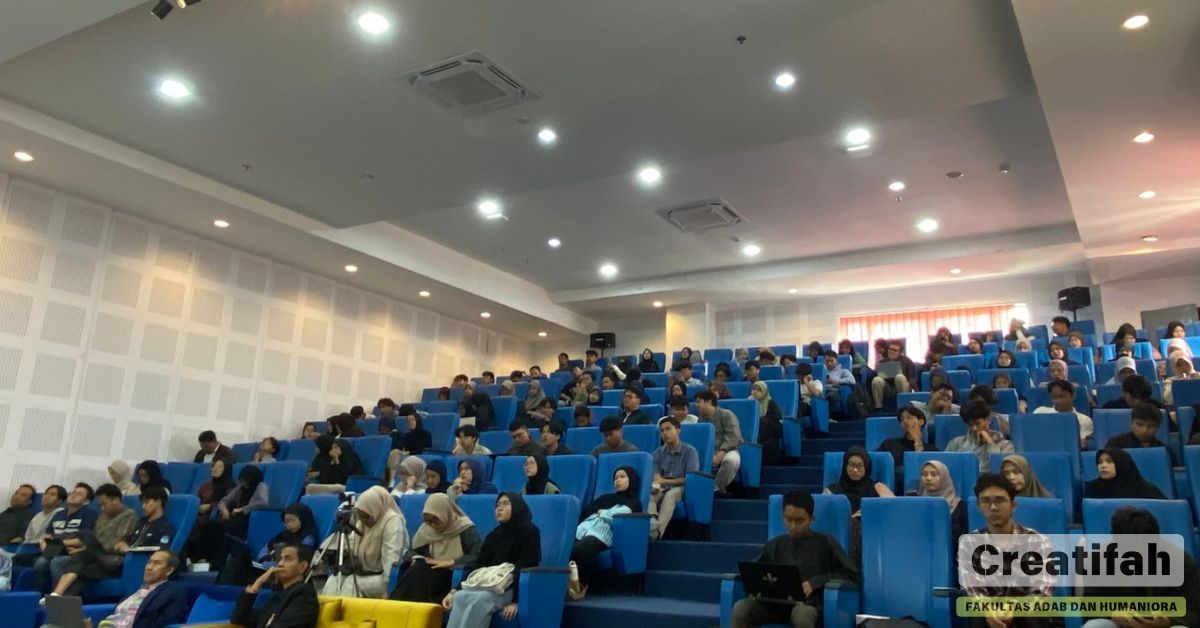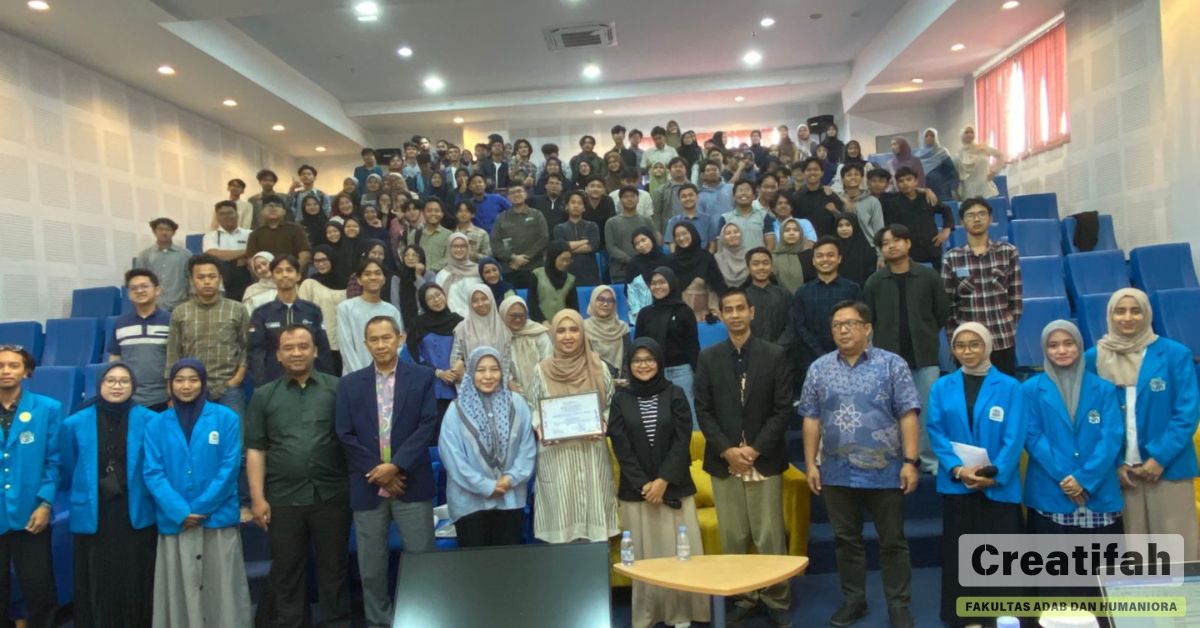Arabic Language and Literature Study Program Holds Workshop “AI as an Academic Tool” Emphasizes Ethics and Validity in Scientific Work
South Tangerang, FAH News Online — Arabic Language and Literature Study Program, Faculty of Adab and Humanities held a Workshop entitled “AI as an Academic Aid: Validity and Ethics in the Production of Scientific Work” on Tuesday (11/11) at the Bustami Abdul Ghani Theater, 5th floor Faculty of Adab and Humanities. The activity, which took place from 09.00 to 12.00 WIB, was attended by lecturers and students majoring in Arabic Language and Literature from various groups.
The event opened with remarks by Dr. Minatur Rokhim, MA, as Head of the Arabic Language and Literature Study Program. In his remarks, he expressed his thanks to the resource persons and appreciated the enthusiasm of students in utilizing artificial intelligence (AI) technology to support the writing of scientific articles. However, he reminded that the use of AI should be carried out wisely and responsibly.
“I warn all students, especially those in the final semester, to be careful when using AI. Because sometimes AI is only a tool, it doesn't guarantee that the results will always be correct, because the brain and thoughts are still from us,” said Dr. Rokhim's interest.
He also hopes that all participants will take the activity seriously so that scientific work, especially final assignments, can be accounted for academically. The welcome then ends with the reading of basmallah as an official sign of the start of the event.
On a separate occasion, the Dean of the Faculty of Adab and Humanities, Dr. Ade Abdul Hak, S.Ag., M.Hum., also expressed his appreciation for holding this workshop. According to him, this activity is very relevant to academic needs in the digital era, as well as being a reminder so that students do not misuse artificial intelligence in the scientific writing process.
“This activity is very good, not only increasing students' understanding of the use of AI, but also reminding them that the most important thing about writing is the process. AI can help, but it must still be used wisely, transparently and responsibly,” he said.
He emphasized that FAH strongly supports the use of technology as a tool, but not to replace students' intellectual work.
This workshop presented Amalia Zahra, S.Kom., Ph.D., Master of Informatics Engineering lecturer from Binus University, as the main resource person. The material session was hosted by Sayyidatul Ummah, M.Hum., who acted as moderator. In his introduction, the moderator emphasized that AI can indeed expand human intellectual capacity, but integrity must still be maintained.
In her presentation, Amalia Zahra, S.Kom., Ph.D., explained that even though the government encourages technology-based education, the focus on the use of AI in the academic field still needs to be clarified. This workshop aims to increase participants' understanding of the role of AI in academic activities, the ability to validate the results of AI, and the importance of ethical awareness in its use.
He also describes various types of AI, including Generative AI, Analytic AI, Cognitive AI, Predictive AI, Conversational AI, Computer Vision, and Perceptive AI. Dr. Amalia emphasized that AI is only a tool or co-pilot that supports human work, not a substitute for critical thinking skills. “Generative AI does not have a conceptual understanding like humans and often produces fictional references or quotes. Apart from that, the training data may have expired and not gone through an academic validation process such as peer review, he explained.
The material then continues with a discussion of the ethics of using AI in the world of academics and research. Dr. Amalia emphasized that the academic world stands on the values of honesty, responsibility and scientific transparency. Because AI has no moral or ethical awareness, humans are responsible for ensuring its use remains in accordance with ethical principles. Without ethical guidance, AI can be misused to write works without understanding, create false data, or commit digital plagiarism.
Furthermore, he conveyed ethical principles in the use of AI in the academic world, namely scientific honesty, transparency, accountability, data privacy and security, anti-plagiarism and originality, academic validity, as well as fairness and non-discrimination. According to him, Generative AI can help increase creativity and support research, but any results produced must be verified, attributed, and should not be considered original human work without clear recognition.
This activity was interactive, ending with a question and answer session between participants and resource persons. Before the question and answer, the presenter guides you to do hands-on practice using AI in the academic world. Through this workshop, it is hoped that students will increasingly understand that the use of AI in scientific writing is not to replace human thinking skills, but to strengthen academic quality and integrity in the digital era.
Author: Jasmiko
Documentation:


